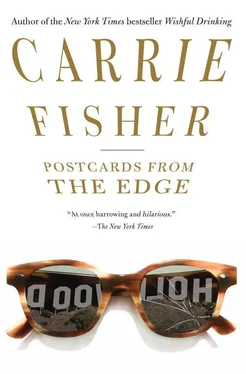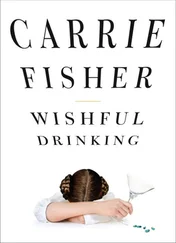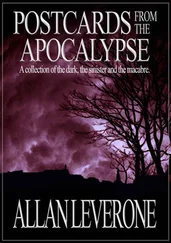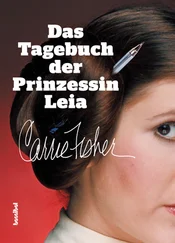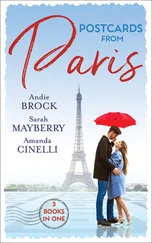“Your caffeine ration,” he said, handing Suzanne the cold can.
“Thanks,” she said. “Where can I get more of these, should the need arise?”
“Prop truck,” said Ted. “Ask Raider, the prop guy. Or I can get you one, if you’re nice to me.”
“Oh, I’m nice,” she said. “I think these will be remembered as my nice years, quickly to be followed by the sullen months, and then, of course, the obscure decades. I only recently finished those wacky fuckup years, so you’re the first to benefit from my reform.”
Rita was about to say something when there was a knock on the door. “Who is it?” called Suzanne.
“Joe Pierce. Just came to welcome you aboard.”
Suzanne opened the door and Ted went out, squeezing past Joe Pierce. “Morning, sir,” he said to Joe, then, to Suzanne, “So, can I tell them you’re ready?”
“I guess,” she said.
Joe Pierce walked into the trailer, a nondescript man wearing a white polo shirt and jeans that, on him, looked like slacks. He looked like somebody’s stepfather. “Any more people in here,” he said, “and we’d need a lubricant.”
Suzanne laughed uneasily, and Rita excused herself. “See you later, Rita,” Joe called jovially, then fixed what passed for his attention on Suzanne. “I just came by to say hello and make sure everything was up to snuff,” he said.
“Everything’s great,” Suzanne assured him, forcing a smile.
“I want you to know we really appreciate your doing a drug screen,” said Joe, who, with his tiny dark eyes in his big white head, reminded Suzanne of a sand dab.
She put her soda can down. “Sure,” she said. “Did I pass?”
“Did you pass ?” Joe echoed, laughing. “Of course you passed. We knew you would. It was the insurance company that was worried, not us. You apparently had some problems on your last film, but…” Joe slapped his knee and stood up. “I just want you to know we’re right behind you one hundred percent. Well, I’ll leave you to get ready.” He opened the door. “See you out there,” he said, disappearing with a wave.
For the first time since she’d arrived at the set, Suzanne was alone. She sat nursing her soda and thinking about her visit with Joe. She hadn’t minded taking the drug screen. She understood that these truly had to be the nice, cooperative years for her. She didn’t think of it as a punishment, not even the part about her salary being held in escrow until she finished the picture, just in case she got loaded and cost the producers money. She just figured she had to do all this until she didn’t have to anymore. It was a repair process that could go on for as long as it liked. She only wished it was for a better film—a big-budget picture, for example, or even a small, interesting art film. A high-action, low-budget film, though, was harder to reconcile.
Suzanne heard the static of a walkie-talkie transmission outside. She swallowed the last of her Diet Coke, opened the door, and followed Ted to the set.
The director, Simon Markham, was English. A nice guy. She’d met him the week before, when they’d interviewed her for the job. For all her desperation, she hadn’t cared that much if she got the part or not. She simply assumed she would never work again. Whenever she wasn’t working, Suzanne knew she’d never work again, and when, inevitably, she did work, she knew it was the last time. It was a relationship with her profession that was based on trust.
Simon was standing near the camera. He was wearing a big straw hat, linen pants, a white T-shirt, and a jacket tossed cavalierly over his shoulders. “You look like you’re dressed for a yacht,” Suzanne said.
“Oh, good morning, darling,” Simon said, almost kissing her on both cheeks. “You’re looking well.” The cinematographer asked him to look through the lens at the shot they were lining up: the scene where Suzanne and her co-star Robert Munch have been tied to a cactus by a bunch of pimps and left to die. It was a long scene with a lot of dialogue, especially Suzanne’s speech about her fear of the dark.
She watched Simon Markham deal with the crew. It was his first feature film and he was nervous, although he seemed to be assimilating his nervousness into his naturally high spirits. Now he was listening to the director of photography explain why the shot wasn’t going to work the way he wanted.
Suddenly Ted appeared at her elbow. “We’re ready for a line-up,” he said. Suzanne nodded and followed him to the cactus, where she was introduced to Robert Munch, was tied up with him, and talked to him about her fear of the dark, all before nine A.M.
Suzanne smiled as she rode back to her grandparents’ house that evening. It had been a good day, she thought. She’d met at least five people who were in AA, including Bobby Munch and his wife, who was down here with him. She had found someone who would give her some water pills before her bathing suit scene. She’d remembered most of her dialogue, and Simon had seemed pleased with her work. She’d met the two executive producers—the Father and the Son—toward the end of the day, and even though they’d been nicer to Bobby than to her, she chalked it up to the overall sexism prevailing in show business and let it go at that.
Suzanne felt that her acceptance of her reality verged on the adult, and was almost proud of herself. Yes, all in all, a pretty good first day.
The next morning, while the cameras were being repositioned for close-ups, Simon came over and sat down next to Suzanne. He was friendly, but there was something else. He seemed almost embarrassed.
“What’s happening?” said Suzanne cheerfully. “Did you have to take a drug test, too?”
Simon looked confused. “Oh, no, no,” he said. “It’s nothing, really. They just… The producers saw rushes last night and had some rather interesting notes.”
Suzanne instantly tensed up. She began wringing out her hair, which had been soaked for the chase-in-the-rain sequence they were filming. “Well, what?” she said, as calmly as she could manage it.
“Now, don’t take it the wrong way,” Simon said. “I saw them this morning and you were fine.”
“It was my first day,” Suzanne said, staring at the ground.
“It was your first day, absolutely,” he said emphatically. “I couldn’t agree with you more. The producers simply felt you should have fun with it.” He stopped and smiled at her. “Just,” he shrugged, “have more fun with it, that’s all.”
Suzanne stared at him. “Simon, if I knew how to have fun with stuff, I wouldn’t be in therapy. I wouldn’t need to have drug tests.”
“Now, now,” Simon said, tilting his head and looking at her as if she wouldn’t finish her vegetables. “I think they had some very interesting comments. Maybe I’m not saying it properly. What I think they mean is that you could own your performance. Make it more your own. Just sort of have fun .”
Suzanne stared at an anthill at her feet. “Really?” she said sarcastically to the ants. “And here I thought everything I did had to be fraught with torment. This is incredible. Why didn’t one of my shrinks tell me this?”
“Now, Suzanne,” Simon said patiently. “You shouldn’t be in this business if you can’t take criticism.”
It was true that Suzanne couldn’t take criticism. Even when directors gave her direction, she often took it as criticism. “But Simon, please,” she said, not looking at him. “‘Have fun with it.’ Don’t you think I would do that with everything I did, if it was at all possible?”
Simon put his arm around her. “I know you can do this part. Just relax into it. Be yourself and you’ll be wonderful.” He kissed the top of her head and went off to talk to his D.P., as Ted walked up to her with a can of Diet Coke.
Читать дальше
